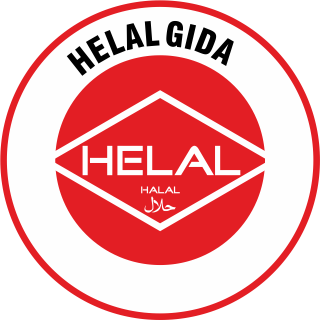
HALAL CERTIFICATE
A Halal certificate is a certificate given to products that are produced, prepared, processed, transported, and stored according to Islamic rules. This certificate confirms that the consumption and use of the product are permissible from an Islamic perspective, meaning it is "halal." The Halal certificate can be issued in many different sectors, primarily for food products, but also for cosmetics, pharmaceuticals, and cleaning products.
The Concept of Halal and its Importance:
Halal is a word of Arabic origin meaning "permitted" or "lawful." In the Islamic religion, it refers to things that are permitted and not forbidden by Allah. Haram, on the other hand, means "forbidden." The Halal certificate documents that a product has been prepared in accordance with Islamic rules at all stages from production to the consumer and does not contain anything that is haram.
Scope of the Halal Certificate:
The Halal certificate generally covers the following:
Food Products:
Meat and Meat Products: Animals must be slaughtered according to Islamic methods (halal slaughter), the blood must be completely drained, and haram meats such as pork must not be used.
Other Food Products: All ingredients, including food additives, colorings, and flavorings, must be halal. They must not contain haram substances such as alcohol or gelatin (if derived from pork).
Cosmetic Products: Cosmetic products must not contain haram ingredients of animal origin, such as pig fat, and alcohol.
Pharmaceuticals: Pharmaceuticals must not contain haram substances such as alcohol or pork-derived gelatin.
Cleaning Products: The ingredients used in cleaning products must be halal.
Services: The Halal certificate can also be obtained in the service sector, such as restaurants and hotels.


How to Obtain a Halal Certificate?
Companies wishing to obtain a Halal certificate must apply to authorized certification bodies. These organizations audit the products and production processes by experts in Islamic rules. As a result of the audits, products that are found to comply with Islamic rules are granted a Halal certificate.
Benefits of a Halal Certificate:
Consumer Confidence: The Halal certificate assures Muslim consumers that the product complies with Islamic rules.
Market Access: The Halal certificate facilitates access to markets with a large Muslim population.
Brand Value: The Halal certificate increases the brand value and reputation of companies.
Competitive Advantage: Having a Halal certificate provides companies with a competitive advantage.
Worldwide Halal Certification Bodies:
There are many Halal certification bodies worldwide. Some of them are:
JAKIM (Malaysia): Department of Islamic Development Malaysia
MUI (Indonesia): Majelis Ulama Indonesia
MUIS (Singapore): Majlis Ugama Islam Singapura
GIMDES (Turkey): Association for the Inspection and Certification of Food and Supplies
HAK (Turkey): Helal Akreditasyon Kurumu (Halal Accreditation Agency)
Contact Us to Begin Your Halal Certification Process.
We offer affordable and effective solutions tailored to your needs.
The information presented on this website does not constitute legal advice and is intended for informational purposes only. KompassEurope.com.tr assumes no responsibility for any errors or omissions in the information contained on this website. Any decisions made or actions taken by the reader based on this information are solely at the reader's own risk, and KompassEurope.com.tr shall not be held liable for any legal consequences arising from such decisions or actions. Readers are strongly advised to seek professional legal counsel regarding their specific circumstances and concerns.
© 2025 Kompass Europe. All rights reserved. The contents of this website belong to Kompass Europe and are protected by copyright laws. Copying, publishing, distributing or any commercial use of the information on the website is possible only with written permission. By using this site, you agree to our Terms of Use and Privacy Policy.
